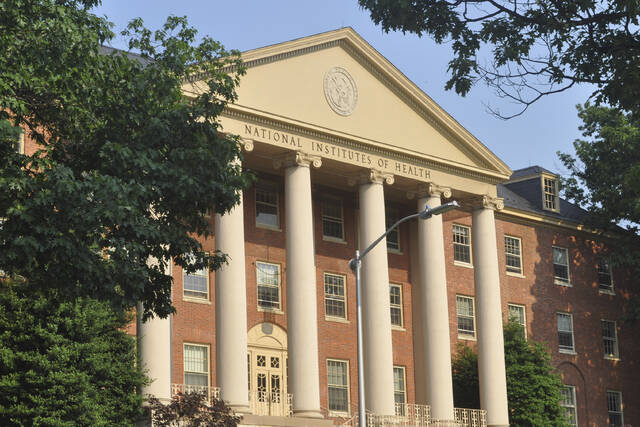https://mirror.triblive.com/news/world/federal-judge-blocks-drastic-funding-cuts-to-medical-research/
Federal judge blocks NIH funding cuts to medical research, including at CMU

A federal judge on Wednesday blocked the Trump administration from drastically cutting medical research funding that many scientists say will endanger patients and cost jobs.
The new National Institutes of Health policy would strip research groups of hundreds of millions of dollars to cover so-called indirect expenses of studying Alzheimer’s, cancer, heart disease and a host of other illnesses — anything from clinical trials of new treatments to basic lab research that is the foundation for discoveries.
Separate lawsuits filed by a group of 22 states plus organizations representing universities (including Carnegie Mellon University), hospitals and research institutions nationwide sued to stop the cuts, saying they would cause “irreparable harm.”
U.S. District Judge Angel Kelley in Boston had temporarily blocked the cuts last month. On Wednesday, she filed a preliminary injunction that puts the cuts on hold for longer, while the suits proceed.
The NIH, the main funder of biomedical research, awarded about $35 billion in grants to research groups last year. The total is divided into “direct” costs — covering researchers’ salaries and laboratory supplies — and “indirect” costs, the administrative and facility costs needed to support that work.
The Trump administration had dismissed those expenses as “overhead,” but universities and hospitals argue they’re far more critical. They can include such things as electricity to operate sophisticated machinery, hazardous waste disposal, staff who ensure researchers follow safety rules and janitorial workers.
Under prior policy, the government negotiated those rates with institutions. As an example, an institution with a 50% indirect cost rate would get another $50,000 to cover indirect expenses for a $100,000 project. The NIH’s new policy would cap indirect costs at a flat rate of 15% instead, calculated to save the agency $4 billion a year.
According to court documents, the following schools are involved in the lawsuit:
The George Washington University, Johns Hopkins University, Massachusetts Institute of Technology, Trustees of the University of Pennsylvania, University of Rochester, Trustees of Tufts College, Association of American Universities, The California Institute of Technology, American Council on Education, Association of Public and Land-grant Universities, Brandeis University, Brown University, The Regents of the University of California, Carnegie Mellon University, The University of Chicago and Cornell University.
Copyright ©2026— Trib Total Media, LLC (TribLIVE.com)
